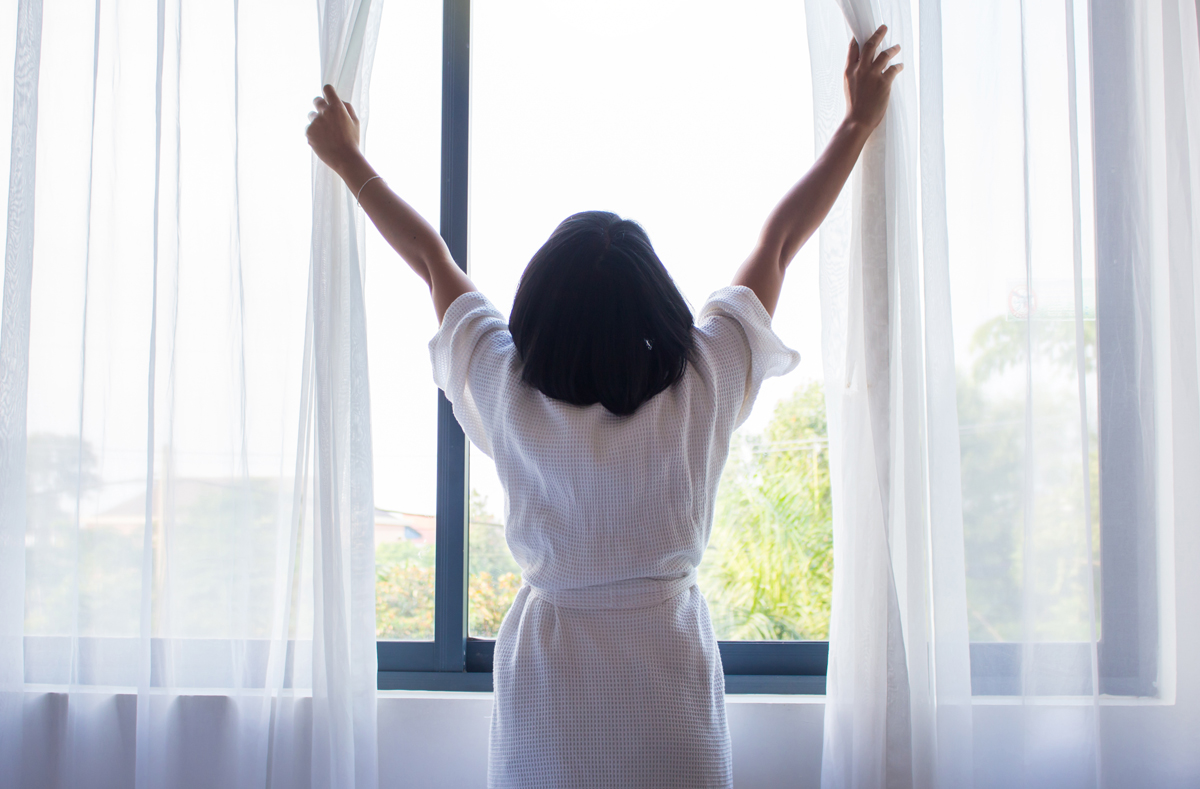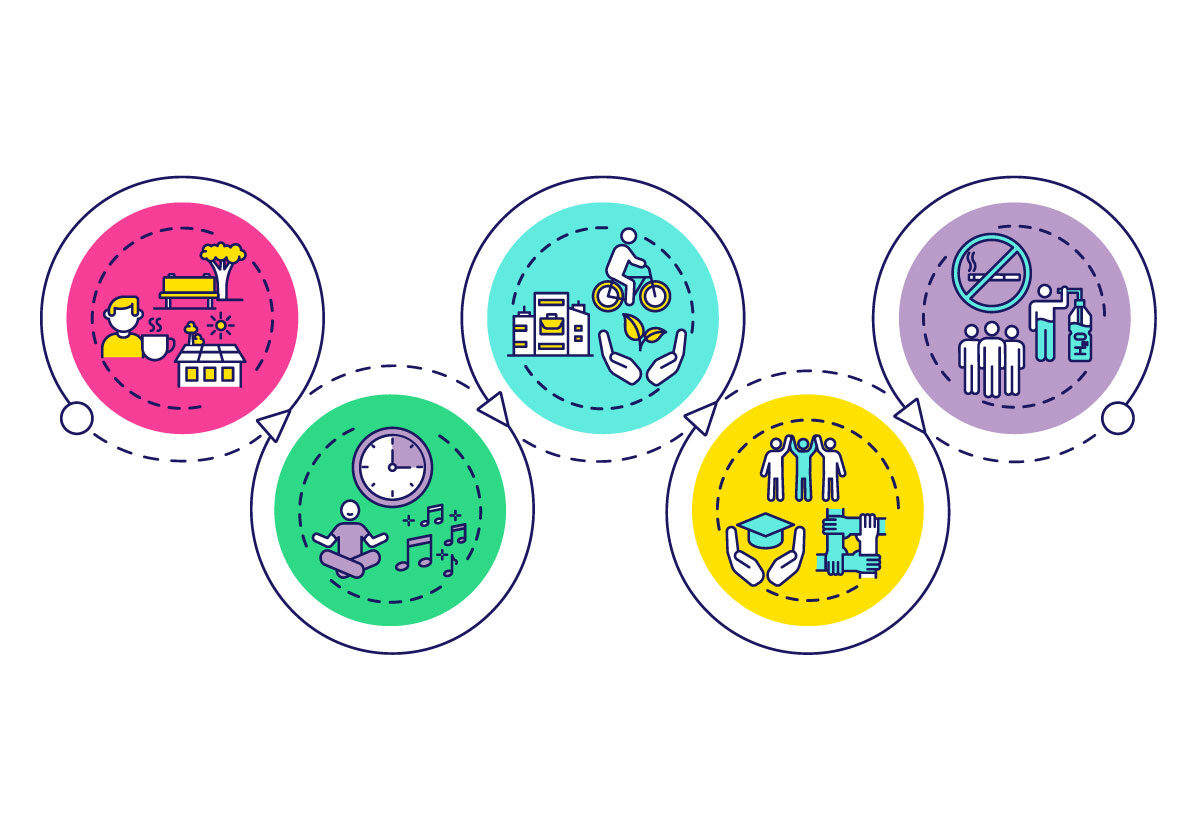Many Canadians fail to get a good night's sleep. The Public Health Agency of Canada recommends that adults ages 18 to 64 get seven to nine hours of sleep a night and adults 65 and older sleep seven to eight hours a night. But the agency's figures show that one in four adults 18 to 34, one in three adults 35 to 64, and one in four adults 65 to 79 fail to get enough sleep. The agency lists chronic stress, a sedentary lifestyle, and poor mental health as reasons for sleep insufficiency.
The importance of getting a good night's sleep
Getting enough sleep is essential for overall health for several reasons.
- Sufficient sleep lowers the risk of contracting several diseases and conditions, including Type 2 diabetes, obesity, and heart disease.
- It helps manage depression and inflammation.
- It improves your mood.
- It improves social relationships.
- It improves the ability to concentrate and so can improve work and school performance.
- It bolsters your immune system so that you are less likely to become sick.
Tips for getting enough sleep
Here are six tips on getting a good night's sleep for good health.
1. Pay Attention to Lighting
Your exposure to lighting affects your ability to sleep. Your body has a Circadian rhythm, or natural clock. Exposure to bright light during the day improves your daytime energy and keeps your Circadian rhythm healthy. It also can help you fall asleep more quickly and sleep better. A recent study of elderly patients showed that two hours of exposure to bright light during the day increased sleep time by almost two hours and sleep efficiency by 13 percentage points to 86 percent.
On the other hand, exposure to bright light at night, especially the blue light from computers and mobile phones, can reduce your ability to get a good night's sleep. To avoid blue light exposure from damaging your sleep, you can download a blue-light blocking app for your smartphone, wear blue-light blocking glasses, or cut off phones and computers two hours before bedtime. Avoiding blue light near bedtime gives your body time to relax and makes falling asleep easier.
2. Have a regular sleep pattern
Circadian rhythms function on a set loop, so consistency is important. Go to bed at the same time each night and arise at the same time each morning. Over time, the body will become accustomed to the pattern.
Also, establish a before-bed routine and keep to it each night. The routine could include a nightly bath, meditation, or another relaxing ritual.
3. Avoid alcohol, tobacco, caffeine, and large meals at night
Tobacco and caffeine are stimulants. They increase blood pressure and can keep you awake if you take them too close to bedtime. A study in the Journal of Clinical Sleep Medicine discovered that consuming caffeine within six hours of sleep significantly worsened sleep quality.
While alcohol may initially help you get to sleep, it tends to wake you up at night. Heavy meals can also cause your metabolism to speed up, making sleep difficult and causing nightmares when you do sleep. Meals high in fat are tough to digest, and avoiding them within three hours of bedtime may be the best option.
If you want a bedtime snack, consider nuts, lean protein, a serving of whole grains, or vegetables.
4. Be physically active each day
Research suggests that daily exercise decreases sleep complaints, according to Johns Hopkins Medicine. People generally notice improved sleep relatively quickly if they engage in at least 30 minutes of aerobic exercise daily. In people with insomnia, exercise during the day provided more benefits than medication, according to a study in the Journal of Clinical Sleep Medicine.
Exercisers should be mindful of when they exercise, however. Aerobic exercise increases alertness, so you should do aerobic exercise early in the day for optimal sleep quality. Yin yoga done at night can improve sleep.
5. Create a peaceful environment
A quiet, dark room with a comfortable mattress and bedding is most conducive to a restful sleep. Studies have shown that new bedding improves sleep quality, so change the sheets regularly.
Many people have an optimum room temperature for sleep, so having temperature controls in the room can also be helpful.
6. Avoid long daytime naps
When we don't sleep well at night, we tend to compensate with a long nap during the day. However, this is generally counterproductive. Long naps in the daytime can confuse your body's internal clock and increase the likelihood that you won't sleep well at night, according to a study in Behavioural Neuroscience. The naps also don't necessarily improve alertness during the day. In a study published in Physiology and Behaviour, participants were actually sleepier after their naps than before.
A short power nap of 30 minutes or less, however, can enhance daytime function and does not negatively impact nighttime sleep.
Summing Up
Sleep is a personal matter and varies with the individual. However, most people sleep better if they are careful about what they do during the day and keep a consistent nightly winddown routine.
At People Corporation, we are concerned about your health and co-workers' health. We can help organizations design healthy programming, and we can help you manage chronic diseases such as diabetes and cardiovascular diseases. We have a variety of virtual health solutions available to our members. Contact us today to find out how we can help you and your organization manage health.
Written by Judy Plotkin, VP Health Solutions People Corporation
Sources:
Healthline: 17 Proven Tips to Sleep Better at Night
Johns Hopkins Medicine: Exercising for Better Sleep
Mashed: Does Eating A Large Meal Before Bed Really Affect Your Sleep?
Public Health Agency of Canada: Are Canadians Getting Enough Sleep?
PubMed.gov: Bright light treatment improves sleep in institutionalised elderly--an open trial
PubMed.gov: Caffeine effects on sleep taken 0, 3, or 6 hours before going to bed
PubMed.gov: Effects of sleep inertia after daytime naps vary with executive load and time of day
Sleep Health Foundation: 10 Tips for a Good Night's Sleep



